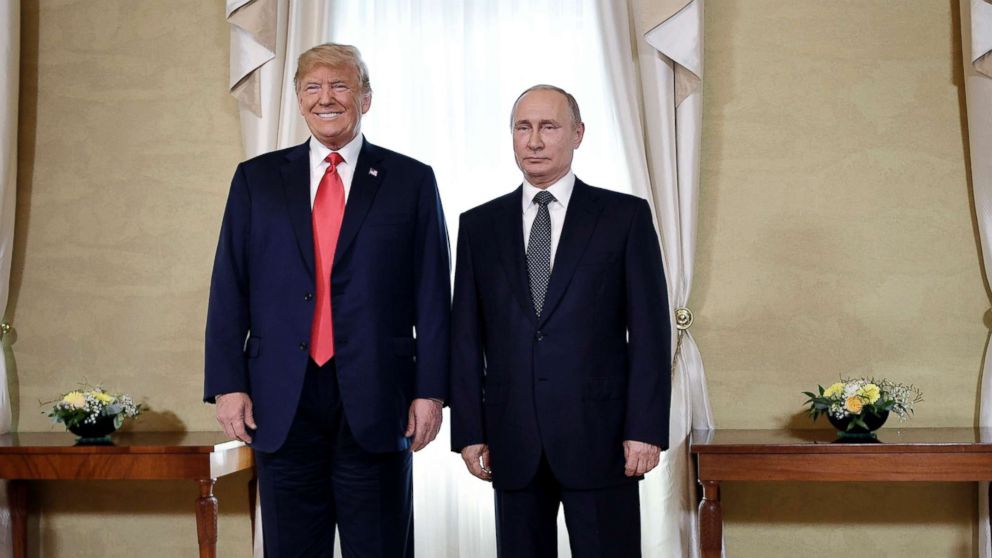


Lawyers for the House Intelligence and Foreign Affairs committees will meet Monday to evaluate their legal options for subpoenaing the interpreters who were present when President Donald Trump spoke to Russian President Vladimir Putin without aides, ABC News has learned.
A senior Democratic aide on the House Foreign Affairs Committee said the Washington Post's new reporting that Trump seized notes from the interpreter at his meeting with Putin in Hamburg, "has changed the calculus."
"This raises a new host of questions," the aide told ABC News. "We're looking into the legal implications of that, and we'll discuss our options. Our lawyers are sitting down with intel committee lawyers to hash it out."
(MORE: Putin blasts 'forces' in the US that want to 'disavow the results' of Trump meeting)The Hill source cautioned that they are not drafting subpoenas, but instead reviewing the best way forward and which committee would submit the request, should they decide to make it. The source told ABC News that a committee vote is still weeks away.
In the days following the Helsinki summit in July, when Trump sat down with Putin and only their interpreters, Democrats on the House Intelligence Committee filed a motion to subpoena the U.S. interpreter, but it was quickly shot down by Republicans.
(MORE: President Trump: Putin meeting 'better' than summit with NATO allies)House Intelligence Chairman Adam Schiff tweeted his interest on Sunday in reopening those efforts.
"Last year, we sought to obtain the interpreter’s notes or testimony, from the private meeting between Trump and Putin," Schiff tweeted. "The Republicans on our committee voted us down. Will they join us now? Shouldn’t we find out whether our president is really putting “America first?”
Schiff's spokesperson declined to comment.
(MORE: Trump casts doubt on US intelligence, calls Putin's meddling denial 'strong and powerful')Some within the Democratic caucus have argued against subpoenaing the president's interpreter because it would set a new precedent that could be problematic for future administrations by making it more difficult to conduct face-to-face diplomacy. The interpreters have high security clearances and that may create restrictions. There's also a legal argument that the president's executive privilege extends to the interpreter.
House Foreign Affairs Chairman Eliot Engel of New York recently announced that he's forming a separate investigative subcommittee to investigate Trump's interactions with Putin.
“Every time Trump meets with Putin, the country is told nothing," Engel said in a statement.
"We will be holding hearings on the mysteries swirling around Trump’s bizarre relationship with Putin and his cronies, and how those dark dealings affect our national security.”
The foreign affairs committee aide said subpoenaing the interpreter was previously seen as a nuclear option, but Democratic members have warmed to the idea because of the new argument that documents may have been removed from the public domain.
Even though Congress will issue the subpoena to the State Department, the White House could step in to try to slow or block the request.
(MORE: European press mocks Trump as 'weak,' 'Putin's poodle' after summit)Republican Sen. Ted Cruz of Texas said Sunday on NBC News it's "premature" to be subpoenaing interpreters.
"I've seen the allegations," Cruz said.
"I want to find out a little bit more about what happened there. I want to learn more than just the allegations in the press."
When asked by ABC News if the State Department will comply with the request, spokesperson Julia Mason said, "I’d refer you to Intel and Foreign Affairs committees for information on the history of witnesses in front of their committees."